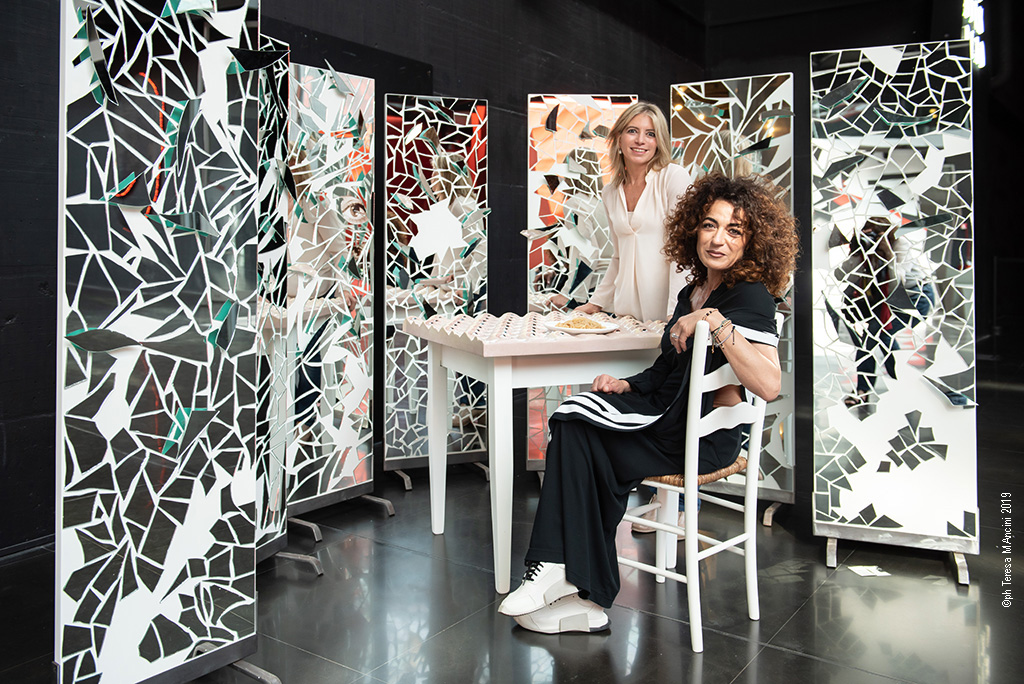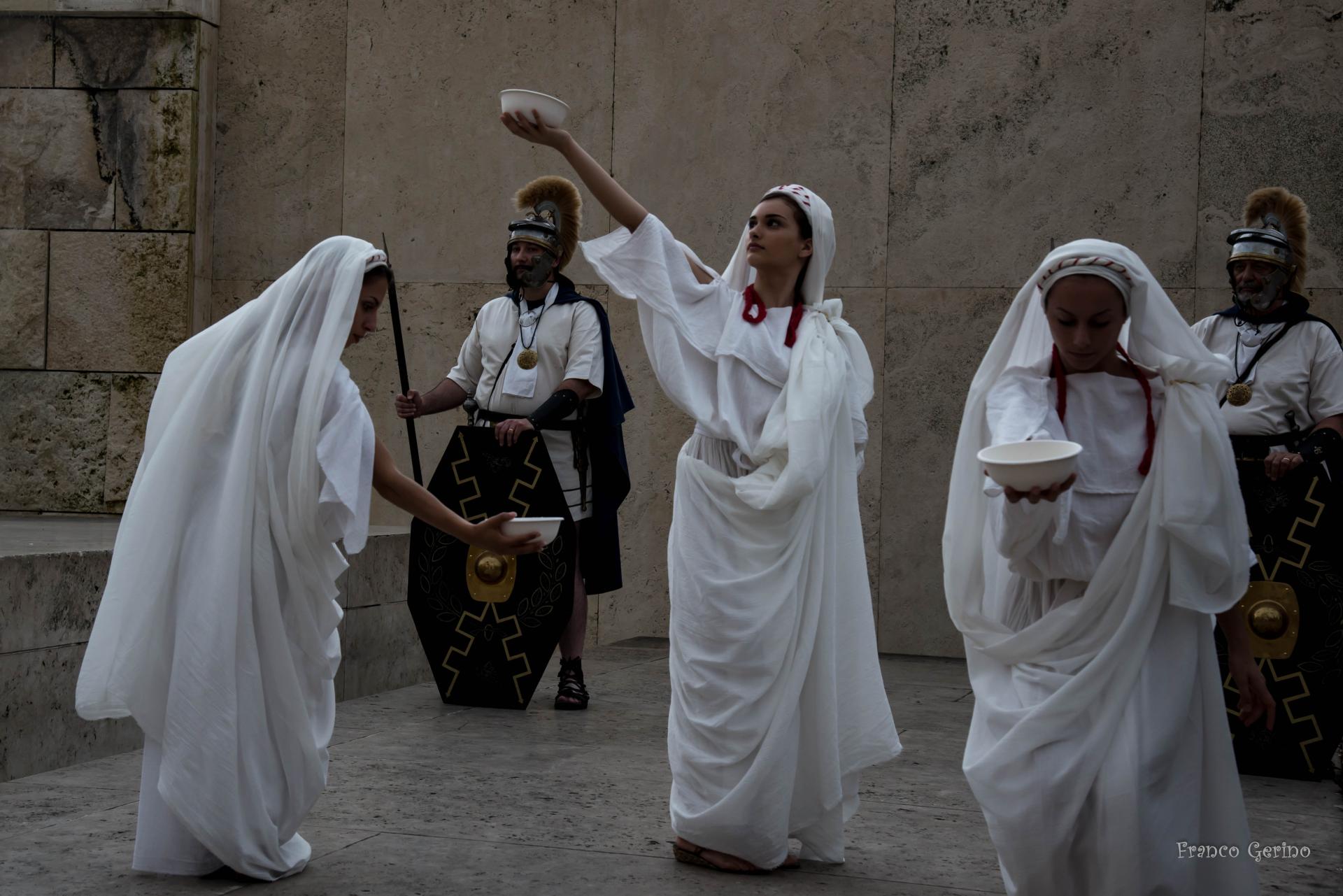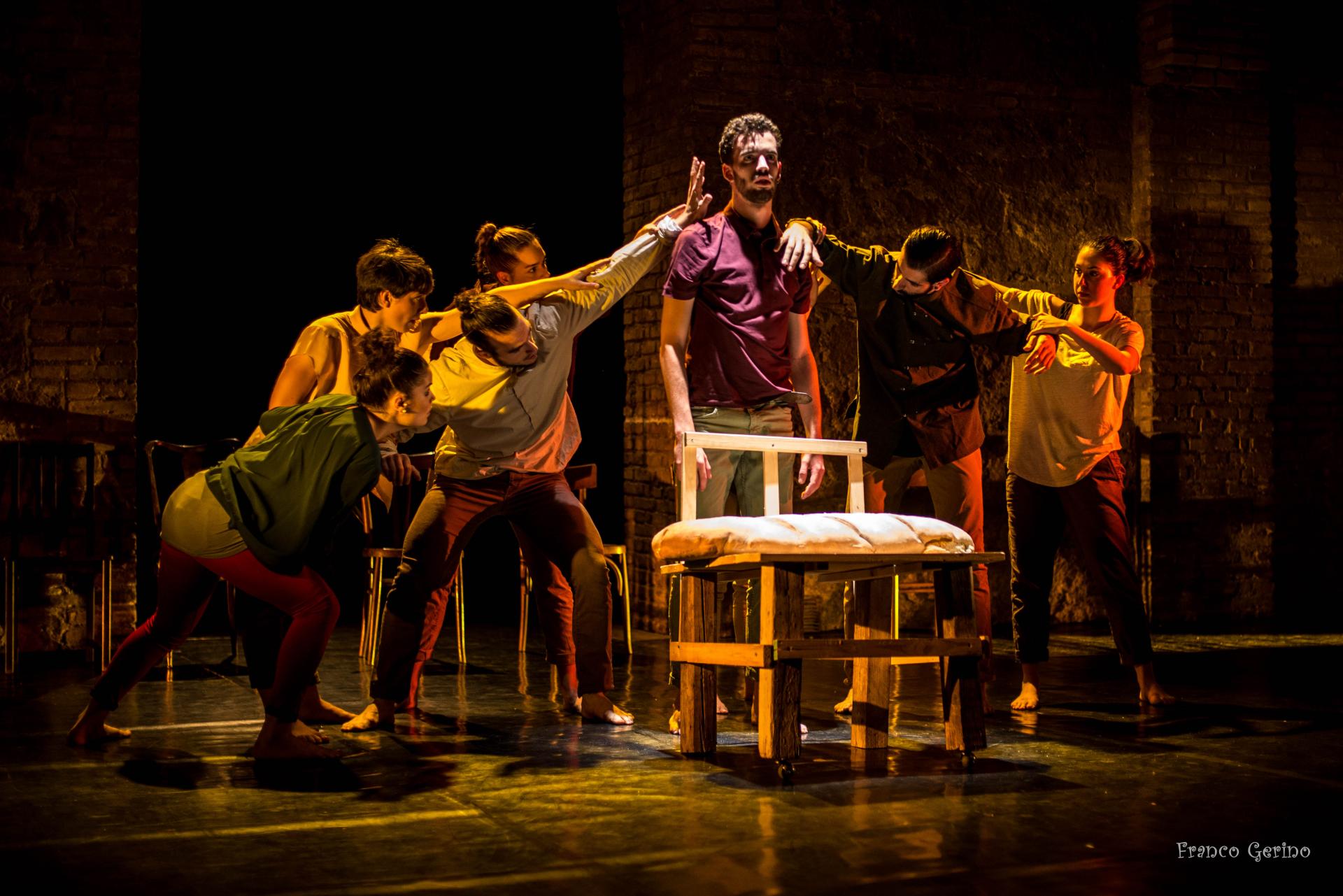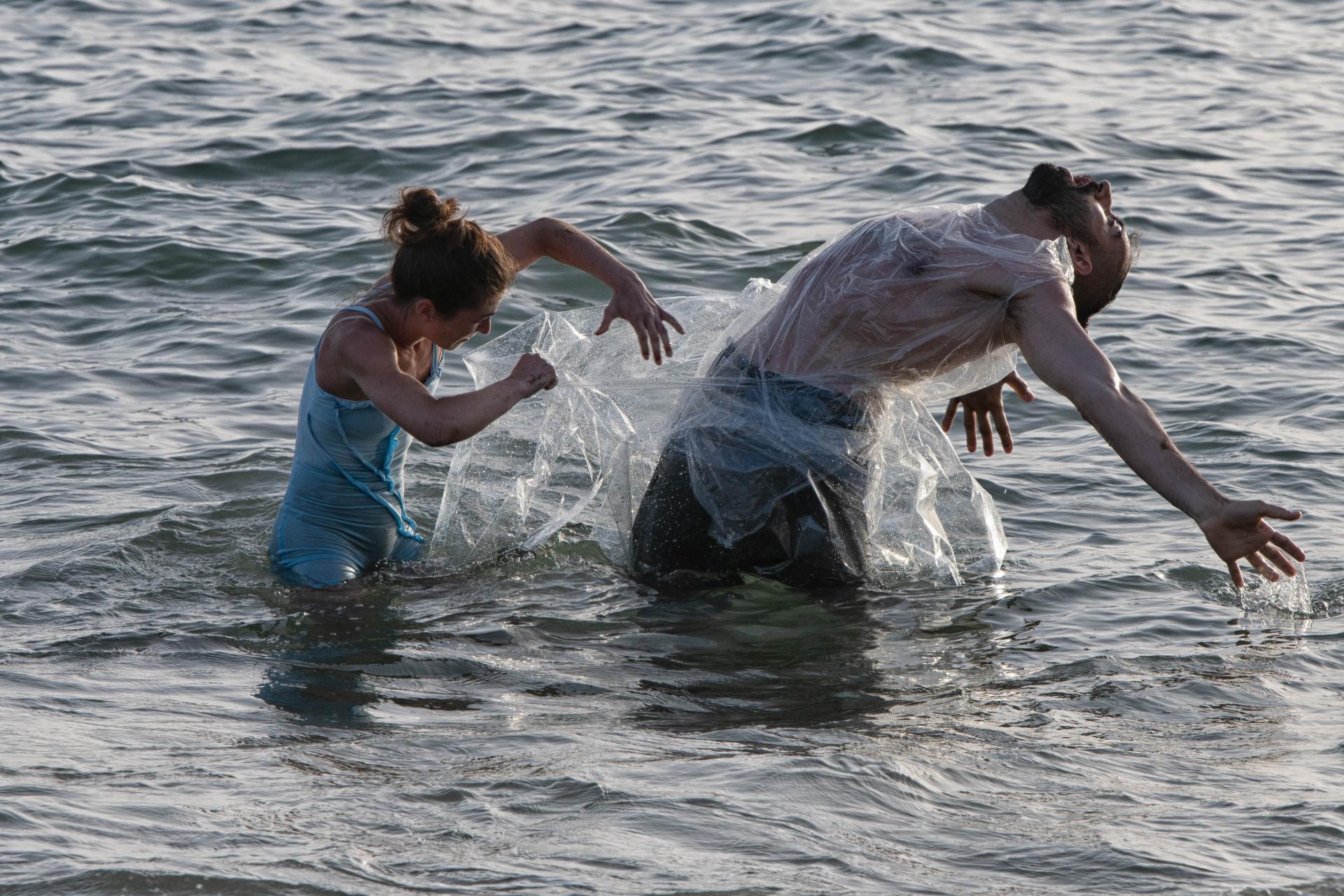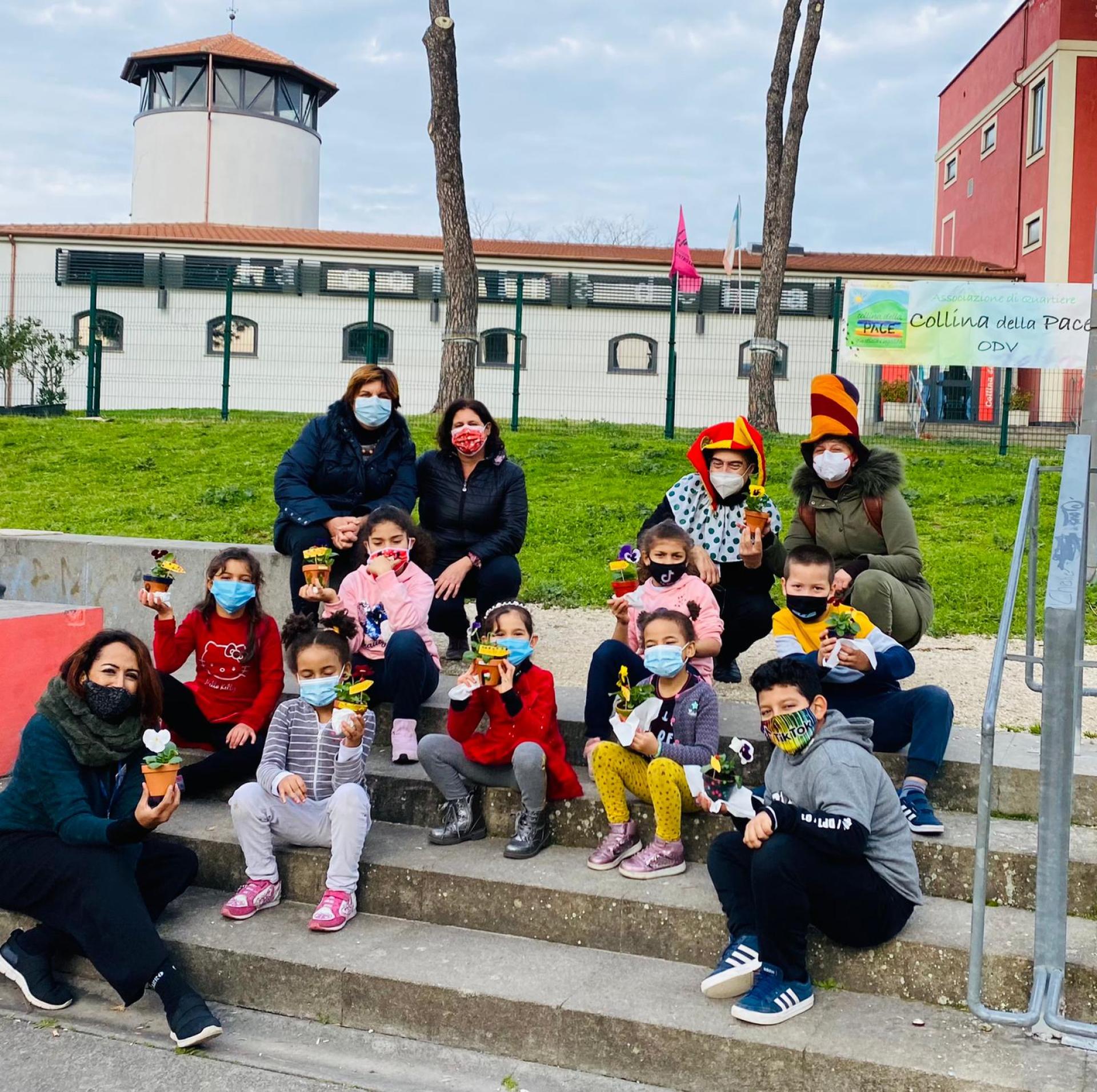Cerealia Festival
Basic information
Project Title
Full project title
Category
Project Description
The festival promotes the sharing of common challenges at the level of regional clusters among peoples overlooking the mare nostrum, stimulating the development of sustainable circular economy models and promoting the 17 SDGs of the UN 2030 Agenda, with a participatory bottom-up approach, which enhances the demands and skills of civil society, respecting and safeguarding of the Mediterranean ecosystem.
Project Region
EU Programme or fund
Description of the project
Summary
Cerealia is a transdisciplinary and hermeneutic festival dedicated to the history and importance of grains in all its forms. In ancient Rome, grains were celebrated in the rites of the Vestals (Vestalia) and the Ludi of goddess Ceres (Cerealia). These ancient rituals represent the ancient Roman historical inspiration of the festival. Its international flavor derives from an emphasis on cultural exchange and enrichment and by focusing on a different country each year: 2011 Egypt; 2012 Turkey; 2013 Greece; 2014 Cyprus; 2015 Croatzia; 2016 Morocco; 2017 European Union / 60 years of the Treaty of Rome; 2018 Malta; 2019 Tunisia, 2020 national edition due to covid; 2021 special celebration. The Mediterranean is the intersection for a myriad of collective identities and societies, connected but essentially diverse. Since ancient times, cultural pluralism has been a dominant feature of the Mediterranean basin. Cerealia serves as an opportunity for cultural exchange on many levels. The key themes are: Culture, Society, Economy, Nutrition and Gastronomy, Environment, Territory and Landscape, Tourism, Collective Identities and shared Memories. The calendar of activities, based on producer’s and partners’ initiatives, includes: seminars, conferences and workshops; live performances; food tastings and themed menus; guided tours, photo and fine arts exhibitions; educational workshops for adults and children. Cerealia is a participatory festival enhancing shared economy and highlighting the positive impact of new consumption and production patterns, more respectful of natural ecology and human needs.
Key objectives for sustainability
Cerealia seeks to increase awareness on the value of land and of indigenous cultures, to renew ties between areas producing grains and consumers, and to revitalize ancient customs based on the respect for the earth and its bounty. The festival intends to promote the sharing of common challenges at the level of regional clusters among peoples overlooking the Mediterranean, stimulating the development of sustainable circular economy models and promoting the 17 SDGs of the UN 2030 Agenda, with a participatory bottom-up approach, which enhances the demands and skills of civil society, respecting and safeguarding of the Mediterranean ecosystem. Since 2011 in 10 year of activities, the festival promoted transdisciplinary thematic meetings of high scientific value also accredited as training courses for professional journalists, performances, workshops for adults and children, guided tours, exhibitions and many other initiatives to spread a cultural approach towards food, environmental, social and economic sustainability. Each year the festival focuses on a specific theme, on a different Mediterranean host country and on a specific cereal, developing interdisciplinary and transidisciplinary actions. The organizers are committed also to creating a sustainable event with low environmental impact
Key objectives for aesthetics and quality
As an interdisciplinary and widespread event, over the years Cerealia has involved public and private institutions, companies and civil society organizations; it has opened up to the use of operators and citizens spaces and places of culture that are still little valued; has produced and disseminated in a transdisciplinary way contents aimed at scientific, environmental and cultural dissemination for example, shows were produced on the theme of plastic pollution in the oceans presented to the public in the natural element itself (the sea); other performances have for example deepened food education; the festival hosted photographic exhibitions and installations on topics like environment, food, gender discrimination; performances in archaeological sites, hotels, cultivated fields and factories. The festival has helped build a bridge between the cultures of the Mediterranean, with bilateral exchange of cultural and scientific activities and projects in particular with Croatia, Morocco, Tunisia, China. The festival has received the following awards: EFFE - Europe for Festivals, Festivals for Europe Label 2015/2016; selected by Regione Lazio among the "Good Cultural Practices" (n. 22 out of 198) and among the 18 "Good Cultural Practices of Excellence" (Regione Lazio, BUR 4718 of 20/10/2016 - n. 84); EFFE - Europe for Festivals, Festivals for Europe Label 2017/2018; member of the coordination table of the MAECI World Week of Italian Cuisine (from 2018); EFFE - Europe for Festivals, Festivals for Europe Label 2019/2021; Medal of the President of the Republic of Italy to the 2017-2018 - 2019-2020 editions. Cerealia supports The Milan Charter on Food and Nutrition: http://www.milanprotocol.com. The festival was included in the Barilla Center for Food & Nutrition publication “Food People & Planet. Sharing responsibilities for a more sustainable tomorrow” produced for Milano Expo 2015
Key objectives for inclusion
Cerealia particularly promotes activities with attention to peripheral local communities, small artisan businesses in the area, as well as children, women and families. The intention of the festival is informative and educational, through an integrated and cooperative approach, in which the use of the activities is mostly free. Inclusion is considered an essential and strategic element, networking and dialogue in an effective and productive way experiences that combine tradition and innovation, offering opportunities for relationships and visibility to the most marginal realities. The inclusive activities were aimed in particular at the metropolitan suburbs of Rome, such as the Finocchio suburb, where workshops, cultural activities and meetings were held, aimed in particular at women of different ethnic groups present in the area or children (2015-2020). Through the transdisciplinary approach of the activities it was possible to make the migrant communities dialogue with the resident ones (MigrArti2018 project), as well as activating through the theme of identity cuisine, dialogue and meeting actions between women of conflict areas (Palestine, Israel, Egypt) in the Mediterranean (DonnePaceSicurezza2019)
Results in relation to category
Observatory on Dialogue in the Food Industry (ODA) launched in the Festival 2018 with association and a group of researchers, professors and professonists interested in the dynamics underway in the agri-food sector, which the objective to promote a process of collective reflection on the relationships between science and society, involving all the stakeholders of the food system, ie knowledge builders, economic operators, knowledge mediators, decision makers, civil society. More than a hundred stakeholders have joined the ODA, including representatives of public and private bodies, as well as ordinary citizens. Scaena Mediterranea, international project on the enhancement of ancient Mediterranean theaters and festivals, included by the Italian Governament in the programming of the 5 + 5 of the Mediterranean, with the Italian coordination of RIDE. Biodistretto delle Colline e dei Castelli Romani collocated near Rome, the largest agricultural municipality in Europe. Launched in 2019 in an event attended by representatives of local administrations, producers, consumers and major national associations and international organizations. The driving force behind this initiative is the coordination of producers carrying out rural business activities and the citizens, who gave life to the experience of the Farmers Markets of Rome, Castelli Romani and the Metropolitan City, capable of involving thousands of consumers and hundreds of producers over the years, creating a flywheel for an alternative, sustainable and eco-compatible development and at the same time enhancing the resources of the territory through also cultural activities. Virtù project: hybrid project that combines performing arts and sciences to address the theme of sustainable food (carried out in November 2020) and supported by the Ministry of Agriculture and Forestry
How Citizens benefit
Since its first edition in 2011, the Cerealia Festival has built a network of over 70 organizations including businesses, civil society organizations, research bodies and public institutions, as well as private citizens. It has spread its activities - locally organized by the network - in 5 Italian regions and over 30 cities. It involved over 7,000 people/year in the various events, mostly on a small scale of fruition and spread every year. From the collaborations started thanks to the festival, new cooperation projects were born between different partners, experiences of urban redevelopment or agricultural territories, community experiences such as the one started in 2020 and still in progress for the enhancement of the naturalistic, agricultural and cultural heritage of the VI Municipality of Rome (Finocchio / Borghesiana / Rocca Cencia quadrant, via Casilina-via Prenestina), which involves public institutions, voluntary associations, the superintendence of cultural heritage, educational institutions (elementary schools and technical institute for tourism); the DMO project of the Castelli Romani-Municipio VI tourist district, for the enhancement of sustainable, experiential and slow tourism in the territory. The actions carried out and launched have regenerated local micro economies and job opportunities in particular for women and young people. The festival has stimulated international partnerships that have received contributions in particular in the context of the ALF calls, bringing the dissemination actions of the projects carried out back to the festival.
Innovative character
First the transdisciplinarity on the key themes (Culture, Society, Economy, Nutrition and Gastronomy, Environment, Territory and Landscape, Tourism, Collective Identities and shared Memories); second The organizing system which operates using a balanced combination of the “glocal model” and the "State model of identity”. Infact, as indicated, the Festival’s producer support the partners at the local level and act as a network for international efforts as well as to design content and activities. Using a “light” management structure the festival producer encourage partners in network to work together to achieve the common goals, in cooperation also with all the festival’s stakeholders, both public and private. Both profit and nonprofit organizations partners of the Festival offer their unique know-how, human and material resources, services, and structure. Festival’s partners are in charge of the activities organized at the local level and cooperate with the Festival producer, which is responsible for its main contents and overall management and support the communication and the dissemination of all activities. This flexible governance framework facilitates the potential development of activities suggested from diverse territories. As participatory festival based on the shared economy, it highlights the positive impact of new consumption and production patterns, more respectful of natural ecology and human needs

